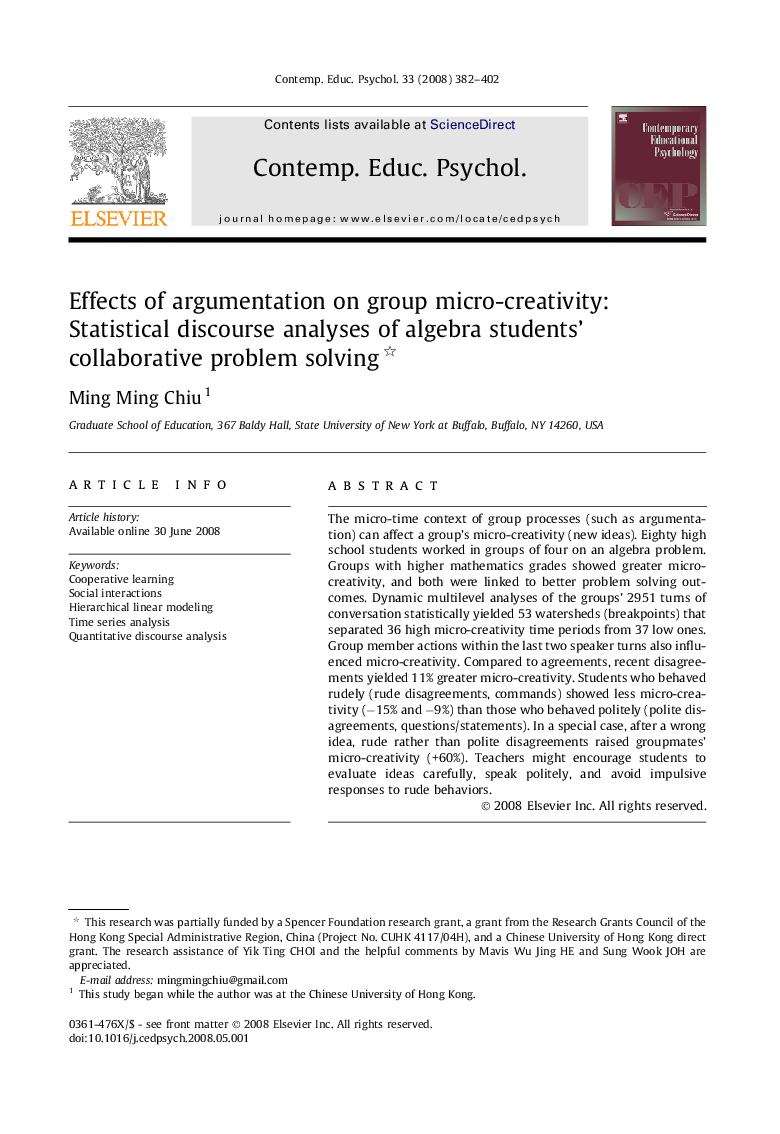| Article ID | Journal | Published Year | Pages | File Type |
|---|---|---|---|---|
| 352902 | Contemporary Educational Psychology | 2008 | 21 Pages |
The micro-time context of group processes (such as argumentation) can affect a group’s micro-creativity (new ideas). Eighty high school students worked in groups of four on an algebra problem. Groups with higher mathematics grades showed greater micro-creativity, and both were linked to better problem solving outcomes. Dynamic multilevel analyses of the groups’ 2951 turns of conversation statistically yielded 53 watersheds (breakpoints) that separated 36 high micro-creativity time periods from 37 low ones. Group member actions within the last two speaker turns also influenced micro-creativity. Compared to agreements, recent disagreements yielded 11% greater micro-creativity. Students who behaved rudely (rude disagreements, commands) showed less micro-creativity (−15% and −9%) than those who behaved politely (polite disagreements, questions/statements). In a special case, after a wrong idea, rude rather than polite disagreements raised groupmates’ micro-creativity (+60%). Teachers might encourage students to evaluate ideas carefully, speak politely, and avoid impulsive responses to rude behaviors.
